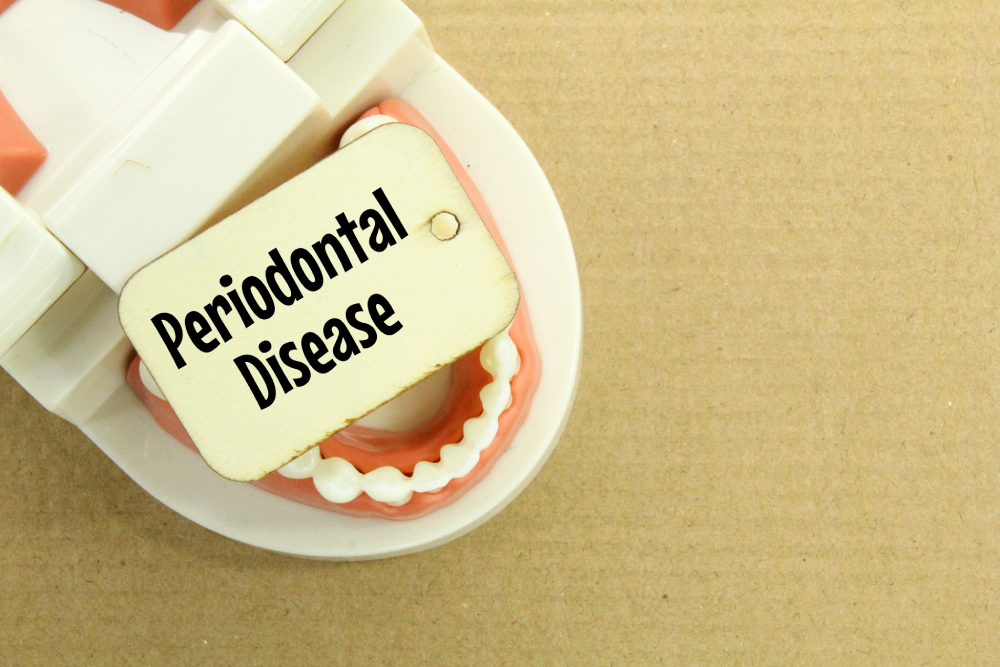What Is Periodontal Disease and How Is It Treated?

Did you know that almost half of adults in America have some form of periodontal (gum) disease? The devastating condition continues to be one of the leading causes of tooth loss in adults. High Street Dentistry is pleased to offer periodontal treatment and management to keep you smiling your best for years to come.
What Is Periodontal Disease?
Periodontal is a chronic condition that affects the gum tissues and bone supporting the teeth. The following are the stages of this progressive condition:
- Gingivitis: This early stage of gum disease is typically characterized by red, swollen, and bleeding gums. Prompt treatment and meticulous oral hygiene care can usually reverse the condition.
- Early Periodontitis: During this stage, the gums start pulling away from the teeth and forming “periodontal pockets,” providing an ideal environment for bacteria to flourish. Mild damage may also affect the bone and tissue supporting the teeth.
- Moderate Periodontitis: The symptoms of periodontitis become more severe as the inflammation and infection spread. The gums, periodontal ligaments, and the bone holding the teeth in place may sustain significant damage, leading to gum recession and loose teeth.
- Advanced Periodontitis: During this stage, the infection spreads beneath the gums, causing significant bone loss. Eating and even smiling may become painful, abscesses may develop, and tooth loss or the need for extraction usually follow.
Periodontal Disease and Your Health
Gum disease is a serious condition. Not only is it devastating to your oral health, but it can also impact your overall health. A strong link has been shown between untreated periodontal disease and increased health risks, including heart disease, diabetes, stroke, high blood pressure, and pregnancy complications.
What Are the Causes of Periodontal Disease?
The primary cause of gum disease is poor oral hygiene. If plaque, a sticky film of bacteria, is not removed by daily brushing and flossing as well as regular professional cleanings, it can harden under the gums, leading to inflammation. As the condition progresses, the gums pull away from the teeth, leaving spaces called pockets that trap food particles and plaque. That provides harmful bacteria with the perfect environment to flourish.
Additional risk factors for periodontal disease include smoking, the natural aging process, diabetes, and hormonal changes such as those that happen due to pregnancy. Crooked teeth can also increase the risk of gum disease because they are harder to clean.
How Is Periodontal Disease Treated?
The first line of treatment for periodontal disease is a non-surgical procedure called scaling and root planing or deep cleaning. Scaling is similar to what happens during routine dental cleanings. It involves removing plaque and tartar from around and below the gum line.
When it comes to root planing, the procedure involves removing plaque and tartar from the tooth root surfaces and smoothing them out. That discourages further plaque and tartar buildup and promotes gum tissue healing and reattachment.
In most cases, a scaling and root planing treatment will improve the health of the gums and prevent the inflammation and infection from progressing. If needed, we may recommend topical or oral antibiotics to help control the infection. In severe cases, periodontal surgery may be necessary to prevent further damage to the teeth and gums.
What Happens After Treating Periodontal Disease?
Most patients require periodontal maintenance appointments every three to four months after treatment. During your visits, we will clean your teeth, evaluate your gum health, and intervene when needed to manage the condition. You must also maintain meticulous oral hygiene care, including regular brushing, flossing, and rinsing with an antimicrobial mouthwash. The success of periodontal disease treatments will depend on the aftercare.
Periodontal Care Near Me in Jefferson City, MO
Contact High Street Dentistry to learn more about the treatment and management of periodontal disease. Our skilled and compassionate team is committed to helping our valued patients improve their gum health and maintain long-term healthy smiles. Call us to schedule your appointment today!
